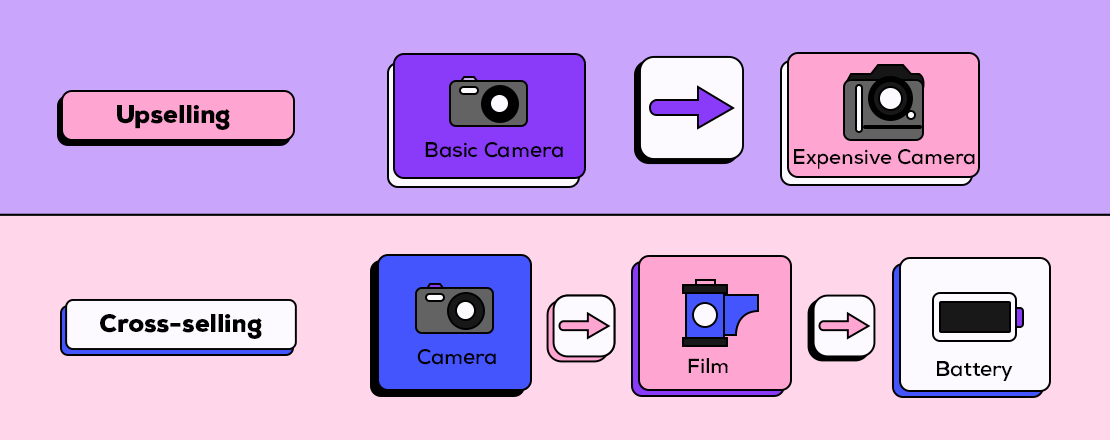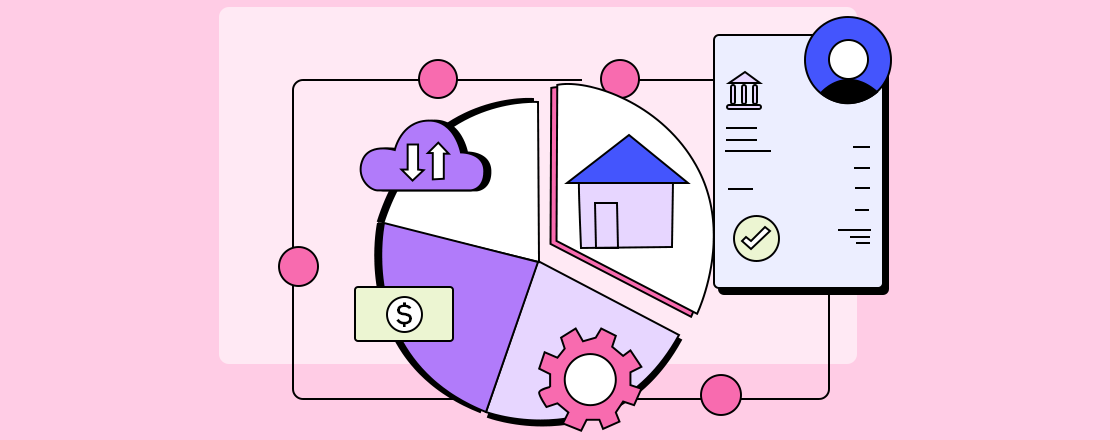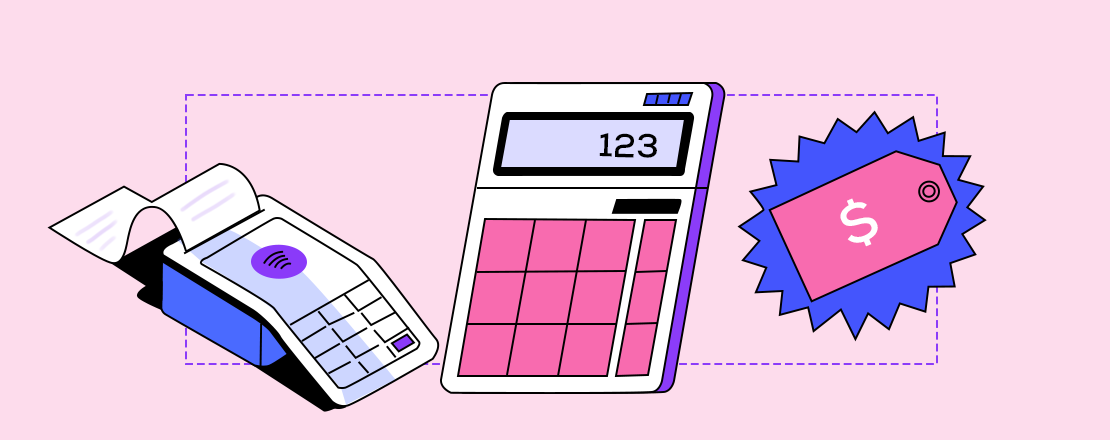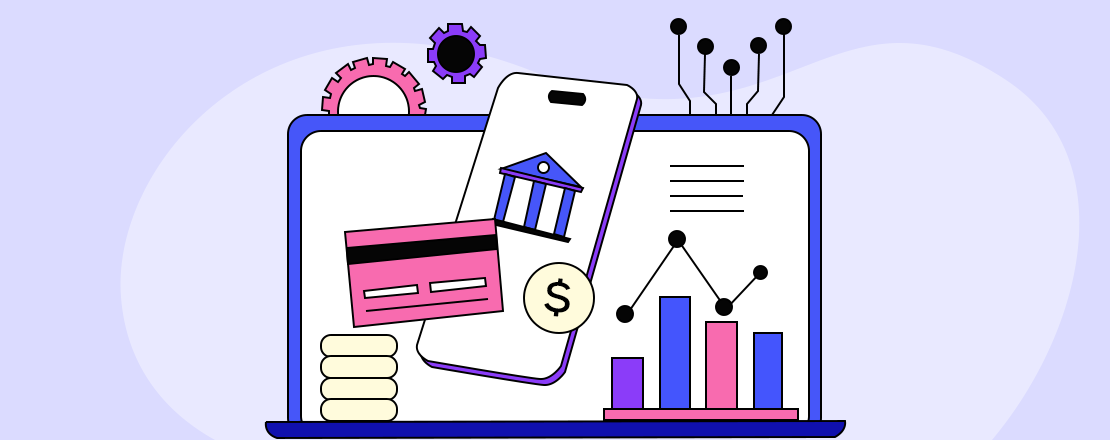Ongoing advancements of the digital world are changing everyday life for businesses, including merchants and lenders. Everything happens faster, and data is in considerable abundance. Keeping pace with these fast-moving and robust technologies requires up-to-date and often decentralized databases for authenticating information and approving transactions, such as blockchain.
However, what is blockchain technology, and how does it help merchants and lenders? This article will address both questions and touch on the concept of decentralization and its crucial role in the blockchain process.
.jpg?width=825&name=shutterstock_749922058(1).jpg)
What is Blockchain Technology?
A blockchain is a public and decentralized digital list of transactions maintained by a network of computers in a manner that makes hacking or altering it difficult. It provides enhanced security through improved digital identification and asset and data ownership procedures.
Each transaction list, or “block,” links to other blocks in a string-like pattern via coding practices that promote higher information security. Individual computer networks, known as “nodes” in the blockchain world, independently verify the transaction’s information, time-stamp it, and add the block to the growing data chain. Once the node records and adds the block, no one can alter the data.
Why is Decentralization Important?
Of course, traditional databases can store this type of data, but the blockchain is unique because it utilizes decentralized storage systems.
In other words, multiple computers across the network manage the blockchain database rather than maintaining all the data in a single location by a centralized administrator. This process promotes independent, unbiased transaction verification, reduces the necessary internal workforce, and minimizes the chances of repeated mistakes and oversights often possible without a second pair of eyes.
This process can be crucial to many industries in different ways, but the following are reasons how it can benefit retail lending specifically:
It Improves Data Recovery
Businesses often trade information back and forth, both internally and externally. Each exchange typically involves updated or modified data, meaning company databases manage flows of varying information constantly. Each time the information changes, it creates an opportunity for data loss or corruption, resulting in the transfer of incorrect or incomplete information.
With a centralized database, these mishaps could pose a significant challenge to ensuring clear and accurate communication. However, utilizing a decentralized data repository where multiple users can view and verify data increases the likelihood of recovering or correcting information.
It Eliminates the Need for Trust
Trust is not a necessity in a decentralized blockchain system. Every given network member is working from an identical record of information, so no single contributor can manipulate data that others will accept and incorporate into their work.
This concept is in many ways analogous to a team working on a report stored in a shared Google docs drive. All team members have access to the same report at the same time and can monitor changes. Members will not finalize that report if it includes incorrect information or spelling and grammatical errors.
Minimize Failures
In frameworks with too much reliance on a limited system of workers, decentralization can help minimize critical failures such as blackouts and information bottlenecks. With no means for information or workflow distribution, centralized systems cannot always handle large quantities of data, and they are often susceptible to breakdowns in information flow.
Blockchain Benefits in Consumer Lending
Transaction settlements, payment tracking, and regulatory compliance are successful use cases for incorporating blockchain into the retail and lending sectors.
These steps in the transaction process are often pain points for many financial services companies and merchants, and blockchain presents a compelling list of potential remedies, including:
Removal of Conflicting Truths
Every value chain member can eliminate duplicative processes by using a shared database, preserving one version of the truth across the board. This method might also be helpful in front-end processes by enlisting third-party providers to identify customers and sales associates and avoid fraud and money laundering risks.
Identity Authentication
Blockchain networks create a secure way of identifying customers, which expedites stakeholder communication processing times. A single customer, for example, can make a unique digital ID that stores all their pertinent information. Lenders can then review this ID's information when the would-be borrower applies for a buy now, pay later (BNPL) financing, cross-checking that information with third-party sources in real-time as necessary.
Transparency for Merchants and Lenders
Algorithms handle time and resource-intensive business rules and operations in a digital environment where lending and borrowing occur on the blockchain. The data is authentic, and further reconciliation and verification are unnecessary. Security breaches are also a nonfactor because crucial information and updates are visible to the entire network, providing merchants and lenders with an elevated level of process transparency.
Empowered Users and Increased Security
The use of blockchain to exchange data makes the system more user-friendly and secure. Eliminating unnecessary intermediaries and minimizing process steps reduces counterparty risk and expense while giving users more control over their data. In addition, blockchain improves this data sharing by safeguarding against data inconsistency issues that arise through ongoing service transfers.
Improved Loan Service Efficiency
Due to unnecessary procedure complexities, loan servicing companies often encounter data management issues during the collection and transfer processes. However, blockchain technology may help simplify and streamline these processes through the decentralized approach where those potential entanglements are disseminated through the network instead of managed by a single entity.
We Know How Blockchain Works
What is blockchain technology? To summarize, it is a decentralized data platform that maintains a library of resources and information through a peer-to-peer network. That information may include lending agreements, transaction details, borrower data, and lending products information.
As information keeps coming faster and in larger chunks, merchants and lenders should consider blockchain technologies for retail financing. Its safeguards against compromised information, data breaches, and fraudulent practices might prove paramount as data becomes more complex for a single platform to handle.
Our platforms possess the technologies to facilitate blockchain implementation, providing you with the necessary tools to provide customers with a streamlined, accurate, and secure lending process. To learn more, request a demo or email us at support@skeps.com.















